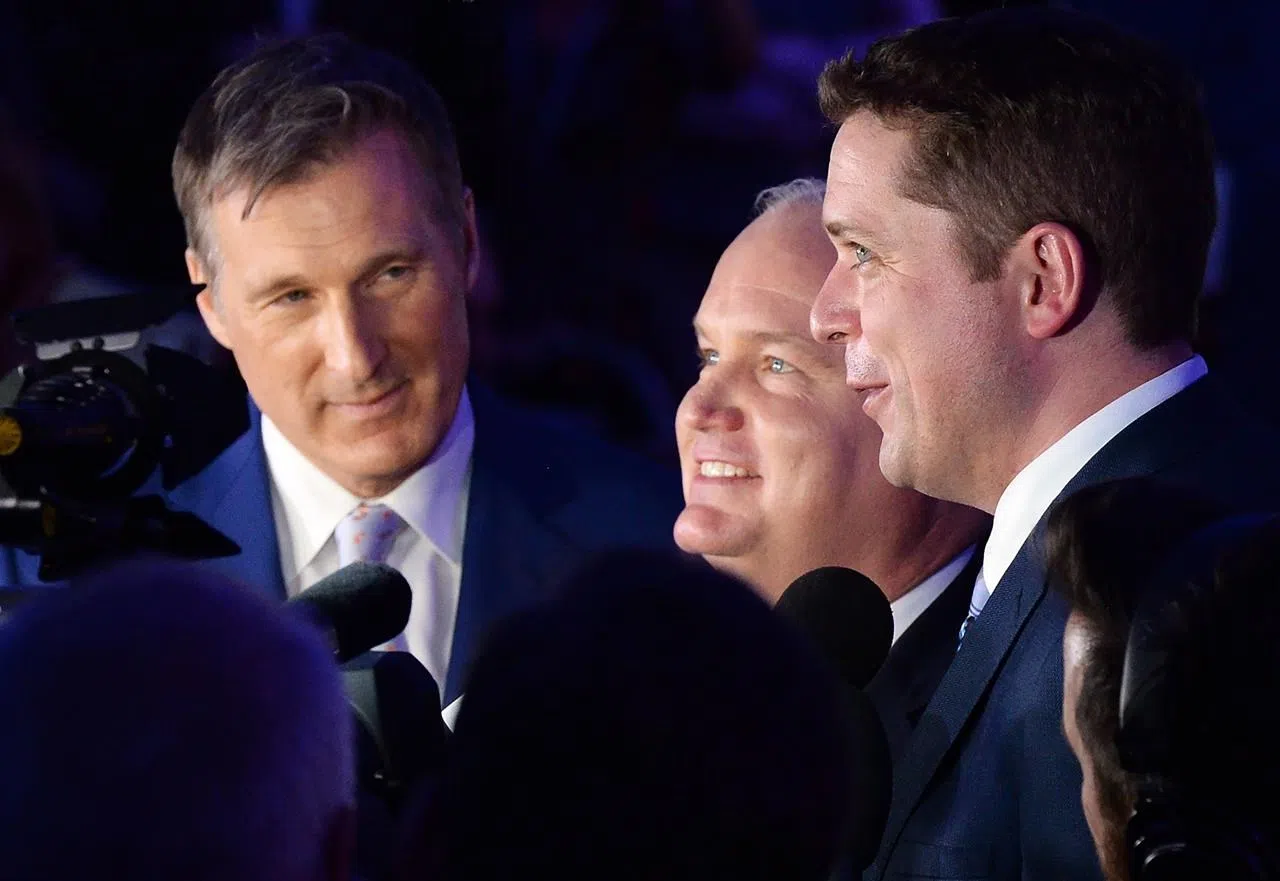
The suspenseful moments before Andrew Scheer declared Conservative leader
TORONTO — Maxime Bernier was clutching his partner’s hand so hard his knuckles were white, his brown leather brogues nervously tapping the floor.
Across the aisle, Andrew Scheer’s daughter Grace was on his lap, her arms wrapped around his neck, and next to them, his wife Jill bounced their youngest child, Mary, kissing her squarely on the nose.
The gazes of both men were fixed firmly on the screen in the Toronto Congress Centre’s main ballroom, where Conservative party officials were about to reveal the results of the 13th and final ballot and announce the party’s new leader.
A few minutes earlier, both had been summoned backstage for a quick huddle to discuss what should happen after the results were announced.



